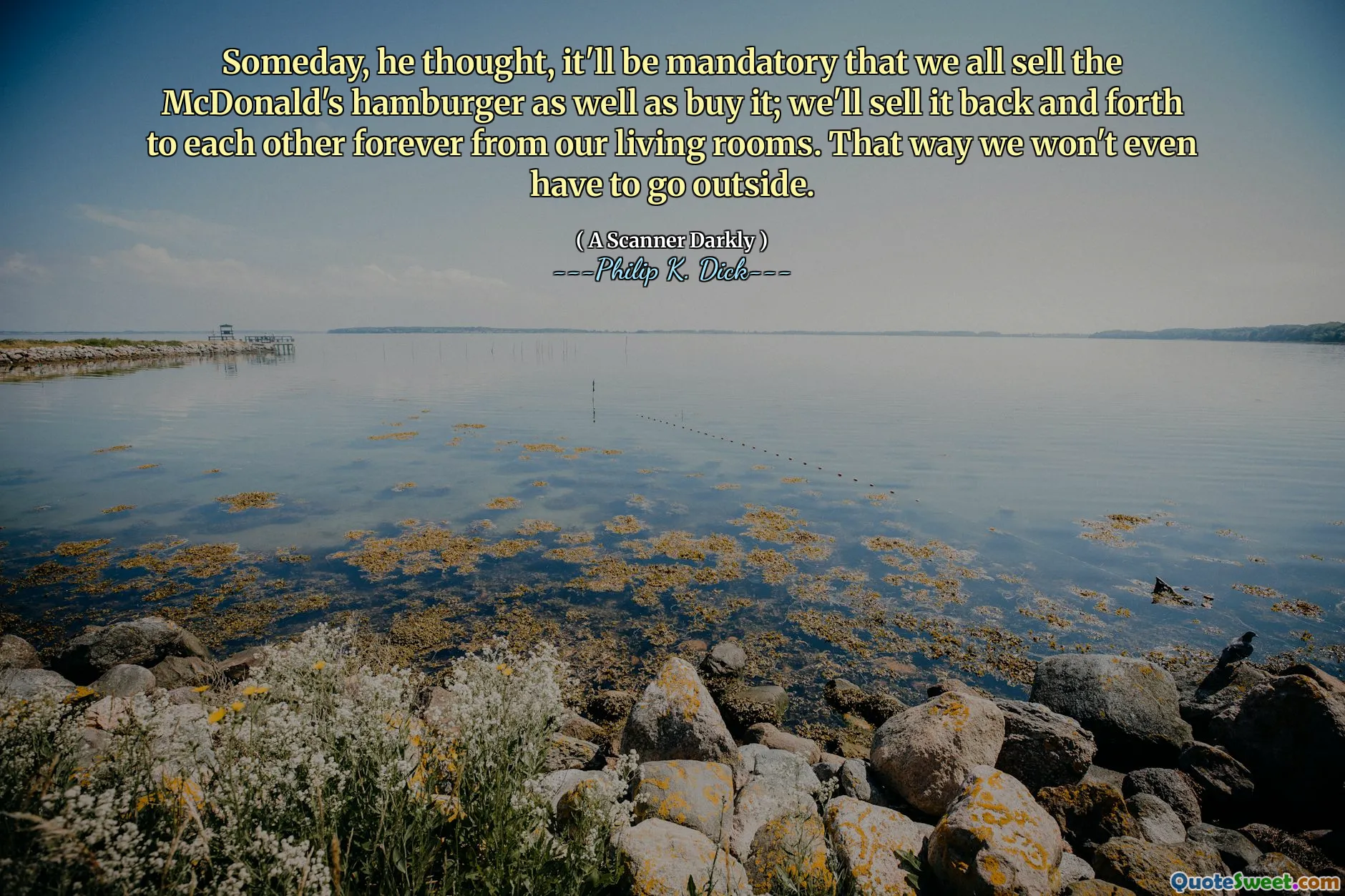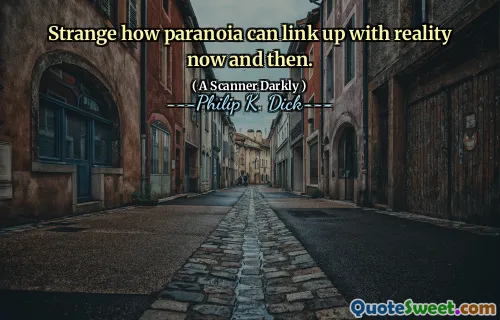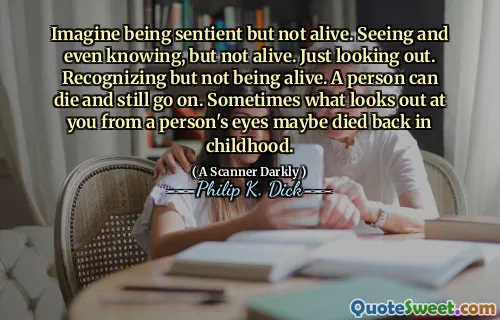
Someday, he thought, it'll be mandatory that we all sell the McDonald's hamburger as well as buy it; we'll sell it back and forth to each other forever from our living rooms. That way we won't even have to go outside.
In Philip K. Dick's "A Scanner Darkly," the protagonist envisions a future where the mundane act of consuming fast food transforms into a continuous cycle of buying and selling. He imagines a society where the convenience of home consumption leads to people trading items like McDonald's hamburgers amongst themselves, eliminating the need for outdoor interaction.
This reflects a deeper commentary on consumer culture, technology, and isolation. The thought reveals concerns about the intertwining of commercialism with daily life, suggesting a potential loss of community and human connection in an increasingly automated and insular world.











